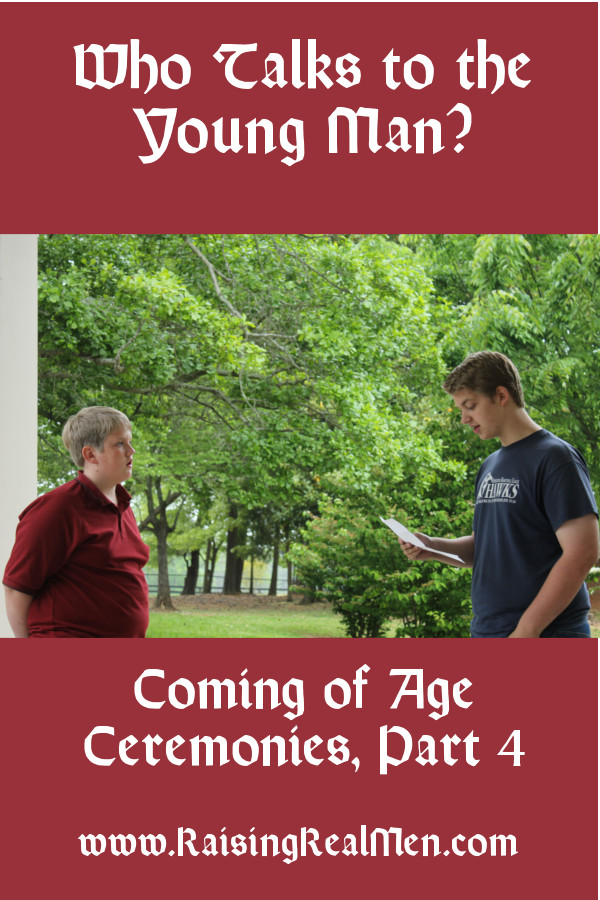Coming of Age:
4. Who Should Speak To The Next Young Man?
We have a tradition of a formal coming-of-age ceremony we call a “Bar Chanon.” This can take all kinds of forms but centers on a serious call to embrace the next stage of life for the young man.
We think it’s only natural for the young man to be welcomed into the community by the voices of the older men he will be joining. When it’s time for our daughters to step into the ranks of young women, we’ll have a similar focus on older women teaching the younger (Titus 2:3-5)
The men we invite to take part are men who have some connection and significance in the young man’s life already. Obviously, we include Hal, the father, as the closest man and role model in their life. From there, you can include grandfathers, uncles, men and leaders in the church, and others like parents of friends, coaches, or teachers outside the immediate family.
Some parents we’ve talked to expressed concern over family members who didn’t share their convictions. It may be hard on family relationships if certain people were excluded, but they were worried that inviting them might make a mockery of the occasion.
If you’re in that situation, we’d encourage you to consider including them anyway. We’ve seen on many occasions that people often respond to the tone of a ceremony, even if it’s unexpected in their daily life (one that stands out in our memory is a militant atheist who came to our very Christ-centered wedding; we caught him on the video singing the hymns with gusto, and in fact, he volunteered in a key position the whole weekend).
One thing which will make them comfortable in the unfamiliar situation is to schedule their presentation late in the ceremony. They’ll be able to adjust the tone of their remarks to be in keeping with the flow of the ceremony, and they’ll have a feel for how long to speak and how to pace themselves.
It also helps to remember that the experience of growing up and assuming the role of manhood is not exclusive to any faith, culture, or philosophy. Someone whose personal code is quite at odds with your own may still share his experience with the value of integrity, diligence, work-life balance, health, or financial management. Even one who has a broken relationship in his past may have some hard-won lessons to share. If you have reason for concern, you might phrase your invitation as a request to share on a particular subject: “Uncle Bob, I’ve always admired the hard work you put in to pay your way through college. Would you be willing to share a few thoughts on the benefits of going the extra length to stay out of debt?”
What if a generation is missing? Both our fathers passed away before we were married, so there were no grandfathers to invite for our sons’ Bar Chanons. Instead, we asked our mothers to speak as representatives of the older generation in our family. We have been blessed with their contribution to the ceremony!
One surprise blessing was including older brothers in the mix. Our sons are close both in age and in affection, and the older ones have been delighted to share even a few years’ perspective with their younger brother. As parents, you can help an uneasy speaker with his preparation, too.


